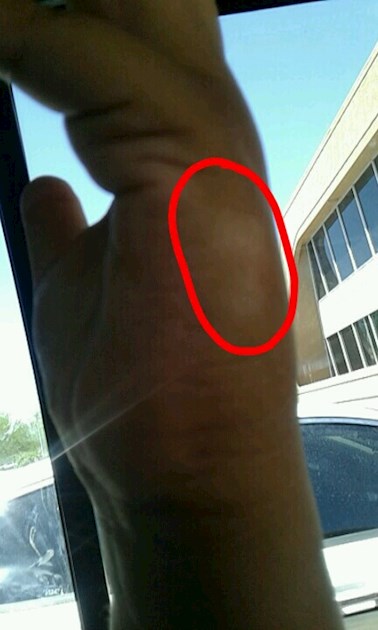The doctor said i could have fungus or villagio
Fungus or Villagio?: The doctor said i... - LUpus Patients Un...
Fungus or Villagio?

Are you being treated? Has the doctor taken a sample for biopsy? I don't know villagio? Do you mean:
Vitiligo, a disorder in which white patches of skin appear on different parts of the body. This happens because the cells that make pigment (colour) in the skin are destroyed. These cells are called melanocytes.
It is a medical condition. People get vitiligo when their body attacks its own melanocytes the cells that give our skin, hair, and other areas of the body colour.
These cells live in the skin, hair, lips, mouth (inside of), nostrils, genitals, rectum, eyes, and inner ear. When the body attacks them, the result can be a few light-colored patches on the skin. Others see widespread loss of skin color. Hair can develop a white streak. This can happen to hair anywhere on the body, including the top of the head, an eyebrow, or eyelash. If the body attacks these cells in the inner ear, the person may develop hearing loss.
You need to see a dermatologist.
What causes the body to attack these cells is not entirely understood. Vitiligo may be an autoimmune disease. These diseases happen when the person’s immune system mistakenly attacks some part of the body.
The picture is not distinct enough to see anything.
Symptoms
Vitiligo
The main sign of vitiligo is patchy loss of skin color. Usually, the discoloration first shows on sun-exposed areas, such as the hands, feet, arms, face and lips.
Vitiligo signs include:
Patchy loss of skin color
Premature whitening or graying of the hair on your scalp, eyelashes, eyebrows or beard
Loss of color in the tissues that line the inside of your mouth and nose (mucous membranes)
Loss of or change in color of the inner layer of the eyeball (retina)
Vitiligo can start at any age, but often appears before age 20.
Depending on the type of vitiligo you have, the discolored patches may cover:
Many parts of your body. With this most common type, called generalized vitiligo, the discolored patches often progress similarly on corresponding body parts (symmetrically).
Only one side or part of your body. This type, called segmental vitiligo, tends to occur at a younger age, progress for a year or two, then stop.
One or only a few areas of your body. This type is called localized (focal) vitiligo.
It's difficult to predict how your disease will progress. Sometimes the patches stop forming without treatment. In most cases, pigment loss spreads and eventually involves most of your skin. Rarely, the skin gets its color back.
When to see a doctor
See your doctor if areas of your skin, hair or eyes lose colouring. Vitiligo has no cure. But treatment may help to stop or slow the discoloring process and return some color to your skin.
Causes
Illustration of the layers of your skin
Skin layers and melanin
Vitiligo occurs when pigment-producing cells (melanocytes) die or stop producing melanin — the pigment that gives your skin, hair and eyes color. The involved patches of skin become lighter or white. Doctors don't know why the cells fail or die. It may be related to:
A disorder in which your immune system attacks and destroys the melanocytes in the skin
Family history (heredity)
A trigger event, such as sunburn, stress or exposure to industrial chemicals
Complications
People with vitiligo may be at increased risk of:
Social or psychological distress
Sunburn and skin cancer
Eye problems, such as inflammation of the iris (iritis)
Hearing loss
mayoclinic.org/diseases-con...
Welcome to LUpus Patients Understanding & Support (LUPUS) at HealthUnlocked.
We also have another website called the LuPUS Message Board where you can also post questions and talk to other people. Registration is FREE and we offer free information and free online psychological support. We specialise in psychological support with our own counsellor/psychotherapist available.
By becoming a Member, you will have access to the private forums and because they are private, only Members have access and even bots and search engines are forbidden.
When you register, please use the following format for entering your date of birth: nn-nn-nnnn where n=number. Please use the "-" separator and not "/".
Finally, please go to: lupus-support.org/LuPUSMB and Sign Up.
I look forward to talking with you more!
Sometimes we need to talk to people who understand and who are not family or friends.
With good wishes!
Ros
Disclaimer: No attempt is made to diagnose or to make any medical judgement. You are advised to seek the advice from your own physician. LUpus Patients Understanding & Support (LUPUS) is not a substitute for your own doctor.